Related Research Articles

Roland Corporation is a Japanese multinational manufacturer of electronic musical instruments, electronic equipment, and software. It was founded by Ikutaro Kakehashi in Osaka on 18 April 1972. In 2005, its headquarters relocated to Hamamatsu in Shizuoka Prefecture. It has factories in Malaysia, Taiwan, Japan, and the United States. As of December 2022, it employed 2,783 people. In 2014, it was subject to a management buyout by its CEO, Junichi Miki, supported by Taiyo Pacific Partners.
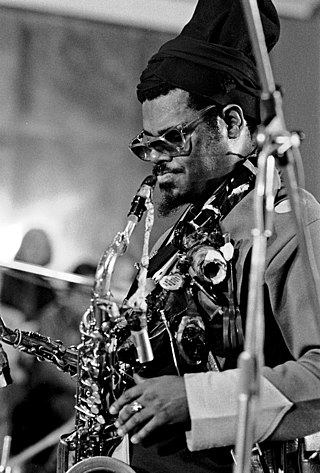
Rahsaan Roland Kirk, known earlier in his career simply as Roland Kirk, was an American jazz multi-instrumentalist who played tenor saxophone, flute, and many other instruments. He was renowned for his onstage vitality, during which virtuoso improvisation was accompanied by comic banter, political ranting, and the ability to play several instruments simultaneously.

A drum machine is an electronic musical instrument that creates percussion sounds, drum beats, and patterns. Drum machines may imitate drum kits or other percussion instruments, or produce unique sounds, such as synthesized electronic tones. A drum machine often has pre-programmed beats and patterns for popular genres and styles, such as pop music, rock music, and dance music. Most modern drum machines made in the 2010s and 2020s also allow users to program their own rhythms and beats. Drum machines may create sounds using analog synthesis or play prerecorded samples.
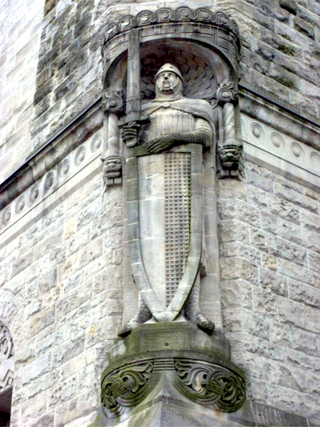
Roland was a Frankish military leader under Charlemagne who became one of the principal figures in the literary cycle known as the Matter of France. The historical Roland was military governor of the Breton March, responsible for defending Francia's frontier against the Bretons. His only historical attestation is in Einhard's Vita Karoli Magni, which notes he was part of the Frankish rearguard killed in retribution by the Basques in Iberia at the Battle of Roncevaux Pass.

The Song of Roland is an 11th-century chanson de geste based on the Frankish military leader Roland at the Battle of Roncevaux Pass in AD 778, during the reign of the Carolingian king Charlemagne. It is the oldest surviving major work of French literature. It exists in various manuscript versions, which testify to its enormous and enduring popularity in Medieval and Renaissance literature from the 12th to 16th centuries.

Collective Soul is an American rock band originally from Stockbridge, Georgia. Now based in Atlanta, the group consists of the brothers Ed and Dean Roland, Will Turpin (bassist), Johnny Rabb (drummer), and Jesse Triplett. Formed in 1992, the original lineup consisted of the Roland brothers, bassist David Neal, guitarist Ross Childress, and drummer Shane Evans. Collective Soul released their Hints, Allegations, and Things Left Unsaid album on the independent label Rising Storm Records in 1993. The band went from obscurity to popularity that year after the album's lead single "Shine" received regional radio play. Around the same time, Turpin replaced Neal on bass. The album was then re-released in 1994 by the major label Atlantic Records; thus, "Shine" became a national hit as it peaked at No. 1 on the Mainstream Rock and No. 4 on the Mainstream Top 40 charts.
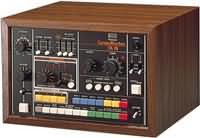
The Roland CompuRhythm CR-78 is a drum machine manufactured by Roland Corporation that was released in 1978. Although primitive by later standards, the CR-78 represented an important advance in drum machine technology at the time, in particular by allowing users to program and store their own drum patterns.

Diamond Rio is an American country music band. The band was founded in 1982 as an attraction for the Opryland USA theme park in Nashville, Tennessee, and was originally known as the Grizzly River Boys, then the Tennessee River Boys. It was founded by Matt Davenport, Danny Gregg, and Ty Herndon, the last of whom became a solo artist in the mid-1990s. After undergoing several membership changes in its initial years, the band consisted of the same six members from 1989 to 2022: Marty Roe, Gene Johnson, Jimmy Olander, Brian Prout (drums), Dan Truman (keyboards), and Dana Williams. After Prout and Johnson both departed in 2022, they were replaced by Micah Schweinsberg and Carson McKee respectively.
Durendal, also spelled Durandal, is the sword of Roland, a legendary paladin and partially historical officer of Charlemagne in French epic literature. It is also said to have belonged to young Charlemagne at one point, and, passing through Saracen hands, came to be owned by Roland.
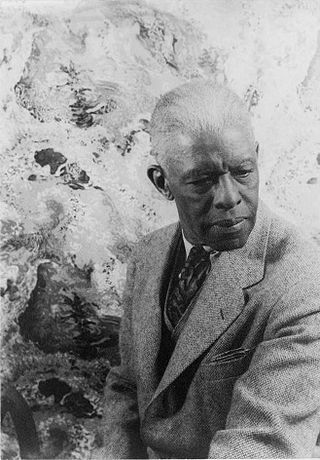
Roland Wiltse Hayes was an American lyric tenor and composer. Critics lauded his abilities and linguistic skills demonstrated with songs in French, German, and Italian. Hayes’ predecessors as well-known African-American concert artists, including Sissieretta Jones and Marie Selika, were not recorded. Along with Marian Anderson and Paul Robeson, Hayes was one of the first to break this barrier in the classical repertoire when he recorded with Columbia in 1939.

The Roland JP-8000 is an analog modeling synthesizer released by the Roland Corporation in 1996.
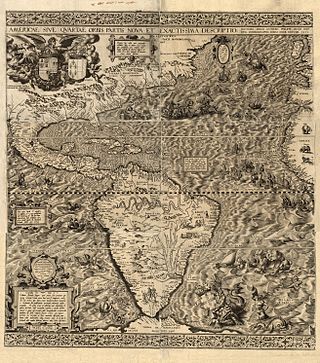
Multiple theories regarding the origin of the name California, as well as the root language of the term, have been proposed, but most historians believe the name likely originated from a 16th-century novel, Las Sergas de Esplandián. The novel, popular at the time of the Spanish exploration of Mexico and the Baja California Peninsula, describes a fictional island named California, ruled by Queen Calafia, east of the Indies. The author of the novel, Garci Rodríguez de Montalvo, also known as Ordóñez de Montalvo, is thought to have derived the term California from the Arabic Khalif and/or Khalifa, but he might also have been influenced by the term "Califerne" in the 11th-century epic French poem The Song of Roland.

Roland Jaime Orzabal de la Quintana is an English musician, singer, songwriter, record producer, and author. He is the guitarist, co-lead vocalist, main songwriter, co-founder, and the only constant member of Tears for Fears. He is also a producer of artists such as Oleta Adams. In 2014, Orzabal published his first novel, a romantic comedy.
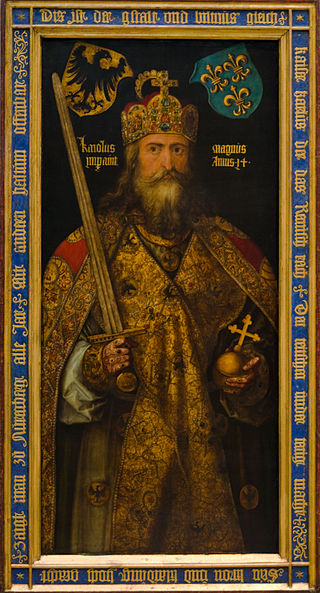
Joyeuse was, in medieval legend, the sword wielded by Charlemagne as his personal weapon. A sword identified as Joyeuse was used in French royal coronation ceremonies since the 13th century, and is now kept at the Louvre.

Oliver, sometimes referred to as Olivier de Vienne or de Gennes, is a legendary knight in the Matter of France chansons de geste, especially the French epic The Song of Roland. In the tradition, he was Roland's closest friend, advisor, confidant and brother-in-law to be, one of Charlemagne's twelve peers and brother of Aude, Roland's betrothed. He dies with Roland at the Battle of Roncevaux Pass. Some critics have linked his name to the olive tree, a biblical symbol of divine wisdom.
"Roland the Headless Thompson Gunner" is a song composed by Warren Zevon and David Lindell and performed by Zevon. It was first released on Zevon's 1978 album Excitable Boy. It was the last song he performed in front of an audience, on The Late Show with David Letterman, before his death in 2003.

The Paladins, also called the Twelve Peers, are twelve legendary knights, the foremost members of Charlemagne's court in the 8th century. They first appear in the medieval chanson de geste cycle of the Matter of France, where they play a similar role to the Knights of the Round Table in Arthurian romance. In these romantic portrayals, the chivalric paladins represent Christianity against a Saracen (Muslim) invasion of Europe. The names of the paladins vary between sources, but there are always twelve of them led by Roland. The paladins' most influential appearance is in The Song of Roland, written between 1050 and 1115, which narrates the heroic death of Roland at the Battle of Roncevaux Pass.
Murgleys, or Murgleis is the sword of Ganelon, a traitorous French (Frankish) count and nemesis to the titular hero of the epic La chanson de Roland.
Précieuse is the sword of Baligant, the Saracen king in the French epic The Song of Roland.
Gramimond ("grim") is the warhorse of Valdabrun, one of the Saracens in the French epic, The Song of Roland. Gramimond is introduced in laisse 118 of the poem and is destroyed along with its rider by Roland.
References
- ↑ Sayers, Dorothy L., translator (1957). The Song of Roland . Hammondsworth, Middlesex, England: Penguin Books. p. 38. ISBN 0-14-044075-5.
{{cite book}}:|first=has generic name (help)CS1 maint: multiple names: authors list (link)